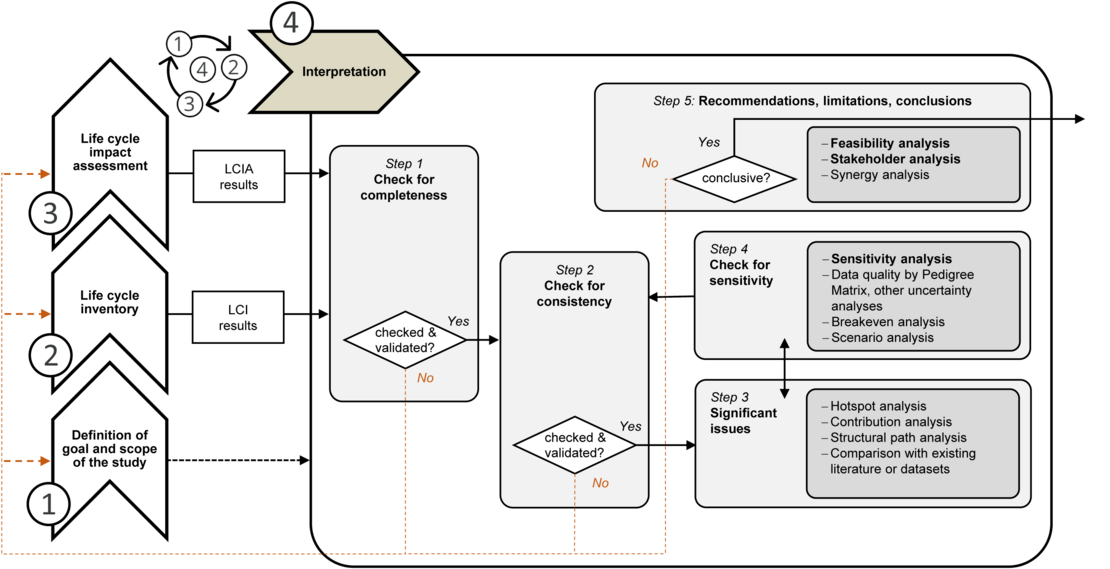The undiscovered potential of the interpretation phase in sustainability assessment
Holistic sustainability assessments such as the so-called life cycle sustainability assessment (LCSA) are planned to use in TRR 280 to evaluate novel design and construction principles. Existing types of LCSA generally follow the modular structure of four phases of life cycle assessment (LCA) standardised by DIN EN ISO 14040:2021. A closer look at the fourth stage, the interpretation phase, enables a better understanding of the sustainability characteristics of a system and more informed decision-making to move from incremental improvements to ground-breaking, disruptive changes. In the interpretation phase, all findings from the previous phases are considered in a reflective manner, and consistency and plausibility checks, as well as sensitivity analyses, are carried out. Finally, the most critical parameters, data quality flaws, and key issues are identified and evaluated.
A reasonable interpretation of these results is also crucial to help stakeholders in the construction industry: to bridge the gap between their values and the actual sustainability performance of buildings and infrastructure. The values of the target groups play a fundamental role. They guide readers of a LCA to the impacts that are most important to them and to the question of environmental sustainability that motivated them to read the LCA. There are approaches to understanding the discrepancies between values and impacts. However, research is still needed on how LCSA or LCA, especially the interpretation phase, can bridge these discrepancies by integrating socio-psychological models.

The need for this arose from the ongoing scientific discussion on LCSA and as well as the scope for interpretation of jointly implemented sustainability assessments as given in project E01. Current research often needs to clarify how LCA studies support corporate decisions because there are widely differing views on how LCA should be carried out. Therefore, one benefit of the results is a described approach to the critical interpretation phase for future sustainability assessments.
The following questions will be analysed:
- Which basic elements, respectively process steps are currently recommended for an ideal interpretation phase?
- What findings are available for the normalisation and weighting of the calculated impact indicators?
- Which socio-psychological models help stakeholders to better explain the step from incremental improvements to ground-breaking changes?

Team
![Prof. Dr. Edeltraud Günther [Translate to English:] Edeltraud Günther](/fileadmin/_processed_/9/b/csm_Guenther_Quadratisch_8296c71fbb.jpg)
D-01062 Dresden (Germany)
![Dr. rer. pol. Christoph Scope [Translate to English:]](/fileadmin/_processed_/e/c/csm_ChristophScope_08f711e973.jpg)
D-01062 Dresden

D-01067 Dresden (Germany)




